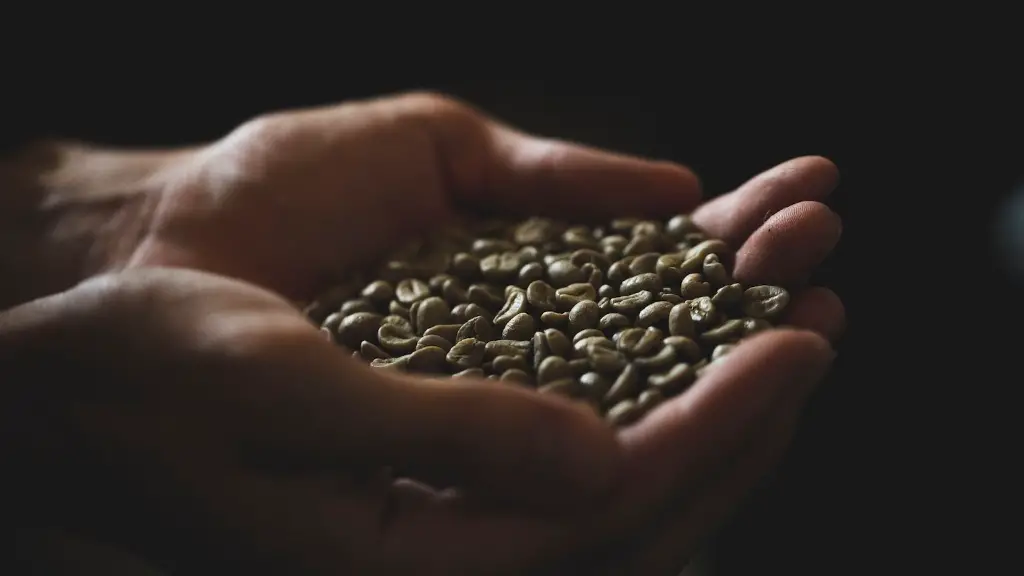Caffeine & Pregnancy: The Link Between Coffee & Birth Defects
It’s well known that pregnant women should keep their caffeine intake in check. Many people assume that means avoiding coffee altogether, but this isn’t necessarily the case. Studies of the potential health risks associated with consuming coffee during pregnancy have been performed, and the research shows that moderate quantities could be safe. In this article we’ll explore the link between drinking coffee while pregnant and birth defects in detail, so you can make an informed decision about your own caffeine consumption.
Caffeine is found in many foods and drinks, including tea, cocoa, energy drinks, soda and of course, caffeinated coffee. It can also be included in some medications such as painkillers and cold remedies. While daily caffeine intake of up to 200mg is generally considered safe for the average healthy adult, pregnant women have been advised to limit their intake to no more than 300mg per day. This amount is equivalent to around two cups of caffeinated coffee, or three cups of tea.
So, is it safe to drink one or two cups of coffee during pregnancy? Studies have found that consuming up to 200mg of caffeine per day during pregnancy does not increase the risk of birth defects. In fact, some studies have even suggested that drinking coffee might reduce the risk of certain birth defects, although further research is needed to confirm these findings. However, it’s important to note that drinking large amounts of caffeine can be harmful and should be avoided.
Women who are pregnant or trying to conceive should bear in mind that caffeine can cross the placenta and enter the fetus. As the baby’s metabolism is not yet fully developed, they are likely to be more sensitive to the effects of caffeine than an adult. For this reason, it’s best to limit your consumption or avoid coffee altogether during pregnancy.
It’s worth noting that some other factors may increase the risk of birth defects and should be avoided wherever possible. These include smoking, drinking alcohol, using recreational drugs and taking certain medications, such as isotretinoin, which is used to treat acne.
It’s also important to bear in mind that studies have found a link between caffeine consumption during pregnancy and an increased risk of stillbirth and low birth weight. Therefore, it’s best to limit your consumption or avoid coffee altogether if you’re pregnant or trying to conceive.
What Are the Alternatives to Caffeine During Pregnancy?
There are many alternatives to caffeine during pregnancy, such as herbal teas, decaffeinated coffee, sparkling water, and yogurt drinks. Drinking plenty of fluids, such as water and juice, is also important, as dehydration can cause contractions and put extra strain on your body.
If you do choose to have caffeinated drinks, it’s important to be aware of the maximum amount you should consume. According to the American College of Obstetricians and Gynecologists, pregnant women should limit their caffeine intake to less than 200mg per day, which is equivalent to one cup of coffee.
There are also some other things you can do to reduce the amount of caffeine you consume. This includes limiting your intake of foods and drinks that contain caffeine, such as tea, chocolate and soda. You should also avoid energy drinks, which can be very high in caffeine. Switching to decaffeinated or lower-caffeine options is also a good idea.
A healthy diet during pregnancy is also important. Eating a balanced diet, with plenty of fruits and vegetables, is essential to make sure you get all the nutrients you need. If you find yourself getting tired or lethargic during the day, it could be a sign that you’re not getting enough energy from food.
The Effects of Caffeine on Infants & Children
It’s important to be aware that caffeine can also affect infants and children. Caffeine can be passed through breast milk and has been found to cause problems with sleep, behavior, and concentration in children who are exposed to it. Therefore, it’s best to limit your caffeine intake during breastfeeding if you have a young baby.
In addition, it’s important to be aware that consuming large amounts of caffeine could increase your risk of miscarriage and stillbirth. Therefore, it’s best to limit your caffeine intake to one or two cups per day if you’re pregnant. In fact, some experts recommend avoiding caffeine altogether during pregnancy.
Finally, it’s worth noting that the developing foetus is vulnerable to the effects of caffeine and other substances, such as alcohol and cigarettes. Therefore, it’s best to limit or avoid these substances altogether if you’re pregnant or trying to conceive.
How To Choose The Right Coffee During Pregnancy?
When choosing the right coffee to consume during pregnancy, it’s important to bear in mind the type of coffee, its brewing method, and its strength. For example, some types of coffee such as espresso and cappuccino are stronger in caffeine than filtered or instant coffee. Therefore, it’s important to choose a lighter roast, or decaffeinated option if possible.
It’s also important to bear in mind the brewing method and time. Brewing for longer periods of time can increase the amount of caffeine extracted from the coffee. Therefore, it’s worth sticking to the recommended brewing times on the packaging.
Finally, it’s worth also bearing in mind how much sugar and other additions you put in your coffee. These can increase the risk of gestational diabetes, therefore it’s best to limit or avoid sugary additions.
Caffeine & Fertility: How Caffeine Can Affect Reproduction?
Caffeine has also been linked to fertility issues. Studies have shown that consumption of caffeine can reduce a woman’s chance of conceiving, and can even lead to miscarriages in some cases. It can also lead to sperm abnormalities in men, thus reducing the chance of conception for couples. Therefore, if you’re trying to conceive, it’s best to limit your caffeine consumption to no more than 200mg per day, as advised by the American College of Obstetricians and Gynecologists.
In conclusion, it’s important to be aware of the link between caffeine and birth defects. While moderate amounts of caffeine have not been found to increase the risk of birth defects, large amounts can be dangerous and pregnant women should limit their intake to no more than 200mg per day. It’s also important to note that caffeine can affect fertility, so couples trying to conceive should also be aware of the potential risks of caffeine consumption.
Can Caffeine Increase The Risk Of Miscarriage?
Studies have also suggested that consuming large amounts of caffeine can increase the risk of miscarriage. While the research is still inconclusive, most experts recommend that pregnant women limit their daily caffeine intake to no more than 200mg per day. It’s also important to note that caffeine can also be found in other products, such as certain medications and energy drinks, so it’s worth checking the label to see how much caffeine is present.
In addition to limiting your caffeine intake, there are other ways to reduce the risk of miscarriage. These include avoiding alcohol, cigarettes, and recreational drugs such as marijuana, and eating a balanced, healthy diet. It’s also important to get regular exercise and maintain a healthy weight.
Finally, it’s important to be aware of the signs and symptoms of miscarriage, such as vaginal bleeding, abdominal pain, and lower back pain. If you experience any of these symptoms, it’s important to seek medical advice immediately.
What Are The Other Benefits Of Quitting Caffeine During Pregnancy?
Aside from the obvious health benefits of avoiding caffeine during pregnancy, there are other advantages to abstaining from coffee and other caffeinated drinks. Firstly, if you’re trying to get pregnant, avoiding caffeine could improve your chances of conceiving. Secondly, abstaining from coffee and other caffeinated drinks can reduce your risk of developing caffeine dependence, which can be difficult to break. Finally, it can help you to reduce your risk of health problems related to high levels of caffeine consumption, such as heart palpitations and anxiety.
In conclusion, while moderate amounts of caffeine have not been found to increase the risk of birth defects, it’s best to limit your consumption or avoid caffeine altogether if you’re pregnant or trying to conceive. It’s also important to bear in mind that caffeine can increase the risk of miscarriage and affect fertility, so couples should be aware of the potential risks associated with caffeine consumption.
Ways To Reduce Caffeine Intake During Pregnancy
If you choose to consume caffeine while pregnant, there are a few things you can do to limit your intake. Firstly, swap caffeinated options for decaffeinated or lower-caffeine alternatives, such as filtered or instant coffee. It’s also important to be aware of the maximum amount you should consume each day, which is 200mg for pregnant women. Finally, it’s worth noting that caffeine is found in other products, such as energy drinks and painkillers, so it’s worth checking the label to make sure you’re not consuming too much.
In conclusion, while moderate amounts of caffeine can be consumed during pregnancy, it’s best to limit your intake or avoid caffeine altogether if possible. There are many alternatives to caffeinated drinks, such as herbal teas and sparkling water, so it’s worth exploring these options if you’re looking for an energy boost.





